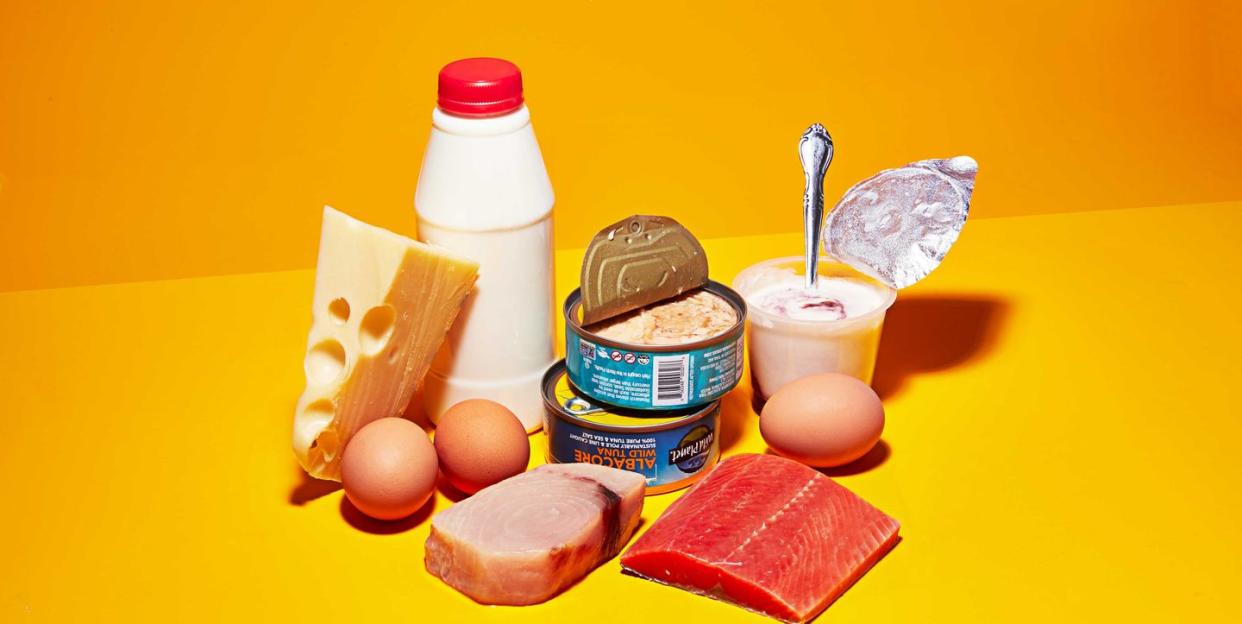The “Sunshine Vitamin” Could Do More Than Just Boost Your Mood

A recent study published in the Annals of Nutrition & Metabolism found that vitamin D could increase your lean body mass.
Getting outside more and filling your diet with foods such as salmon, tuna, dairy, and eggs can help boost your vitamin D levels.
If you’re concerned about a vitamin D deficiency, talk to your doctor about getting a blood test, since it’s the only way to know for sure. Additionally, check with your doctor before taking any supplements.
For those who ride outside in the sunshine or even take additional supplements, vitamin D could potentially boost your lean body mass, a recent study suggests.
Published in the Annals of Nutrition & Metabolism, the research sought to clarify whether one year of supplementation with vitamin D would have a measurable effect on body composition and physical fitness levels of healthy adults.
Researchers from China and Japan recruited 95 participants, and gave half of them 420 IU vitamin D3 every day for a year, while the other half got a placebo. At the end of the year, lean body mass and percentage of body fat were compared to the data from the year’s start. They also assessed physical fitness using hand grip strength, leg extension power, and cardiorespiratory fitness.
They found that those taking the supplement had significant increases in lean body mass—which is calculated by subtracting body fat from total body weight—while the placebo group had no changes. For both groups, no difference was observed with the above physical fitness measures either.
The results are likely because skeletal muscle has vitamin D receptors that help regulate muscle function and performance, as suggested by previous research.
[Find 52 weeks of tips and motivation, with space to fill in your mileage and favorite routes, with the Bicycling Training Journal.]
Even though this particular study concluded there were no changes in muscle strength with vitamin D, other studies have suggested improvement in lean body mass may enhance muscle function overall. For instance, a 2017 study published in the journal PLOS One noted there’s a link between low vitamin D levels and loss of muscle strength, especially in older adults. Another study in the journal Bone Reports stated that vitamin D has long been touted for its beneficial effects on bone heath, but is now increasingly recognized for its role in muscle function—especially with muscle pain and weakness.
Although supplements can be helpful in the winter months for those living in northern climates, it’s also worth getting a bit of vitamin D in its most available form—sunshine!—said Heidi May, Ph.D., an epidemiologist at Intermountain Healthcare.
“We continue to learn more and more about vitamin D and its benefits,” she told Runner’s World. “Low vitamin D levels have been associated with everything from poor cardiovascular health to lower immune function. If you’re getting a little sun, in a sensible way, you’re likely also being active, so that’s a double benefit.”
If you do opt for supplements, there’s still some debate on how much vitamin D you need daily. The recommended daily allowance is 600 IU, but the Endocrine Society suggests consuming potentially much higher levels of 1,500 to 2,000 IU daily.
In addition to getting outside more, look to foods like swordfish, salmon, tuna, milk, yogurt, eggs, and cheese to get enough vitamin D. For instance, three ounces of cooked swordfish contains 566 IU (international units) of vitamin D and 3 ounces of cooked sockeye salmon contains 447 IU of vitamin D.
If you’re concerned that you may be deficient, May said, it’s advisable to get your levels checked at your next physical, since a blood test is the only way to know for sure. Consult your doctor before taking any supplements, too.
You Might Also Like